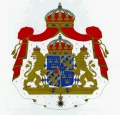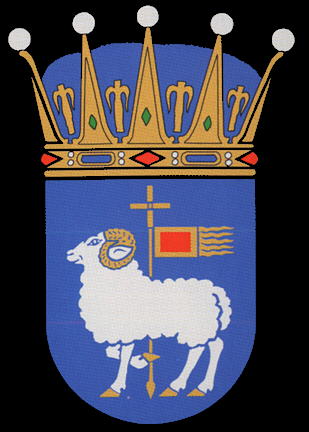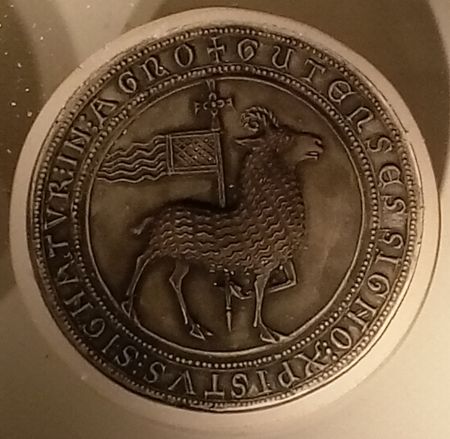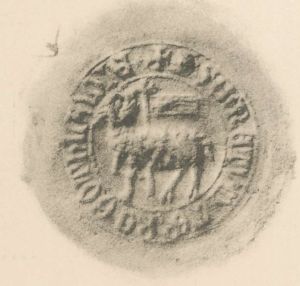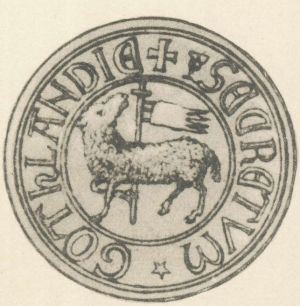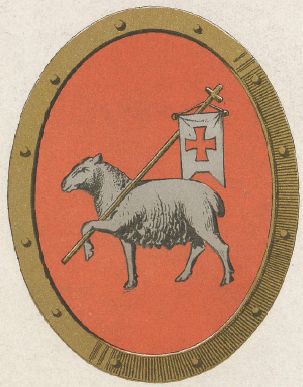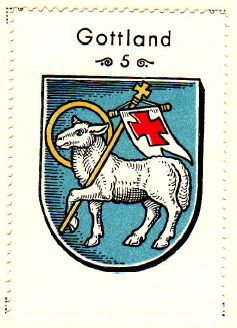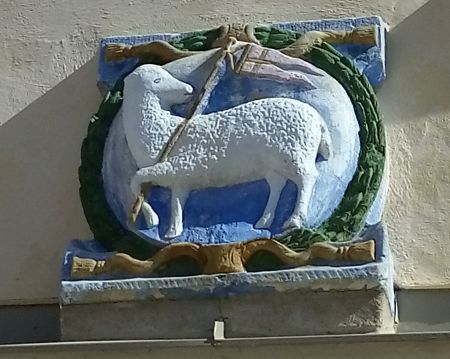Gotland: Difference between revisions
Jump to navigation
Jump to search
Knorrepoes (talk | contribs) m (Text replacement - "|Arms of {{PAGENAME}}]]" to "|Coat of arms (crest) of {{PAGENAME}}]]") |
Knorrepoes (talk | contribs) m (Text replacement - "↵↵''' {{uc" to "''' {{uc") |
||
| Line 1: | Line 1: | ||
{{se}} | {{se}}''' {{uc:{{PAGENAME}}}} ''' | ||
''' {{uc:{{PAGENAME}}}} ''' | |||
[[File:Gotlan.jpg|center]] | [[File:Gotlan.jpg|center]] | ||
Revision as of 05:34, 22 January 2024
Sweden heraldry portal
This page is part of the Sweden heraldry portal |
Heraldry of the World |
|
Civic heraldry:
|
Other heraldry: |
GOTLAND
| Swedish |
I blått fält en stående vädur av silver med beväring av guld, bärande på en korsprydd stång av guld ett rött baner med bård och fem flikar av guld|- |
English | blazon wanted |
Origin/meaning
The arms with the Agnus Dei were already used on the seal of the island in 1280. Ever since the lamb has been the symbol for the island and its capital, Visby.
The arms were adopted as provincial arms when Gotland became Swedish in 1645. They are also use by the Region Gotland municipality.
| The oldest seal of the island (in the Gotland Museum) |
The secret seal of the island (1402-1610) |
| The seal of the island used in 1561 |
The arms as shown by Liljeblad, 1878 |
| The arms in the Kaffe Hag album +/- 1935 |
The arms on the former residence of the governor in Romakloster (2017) |
Contact and Support
Partners:
Your logo here ?
Contact us
© since 1995, Heraldry of the World, Ralf Hartemink 
Index of the site
Literature: Nevéus and de Waern, 1992
